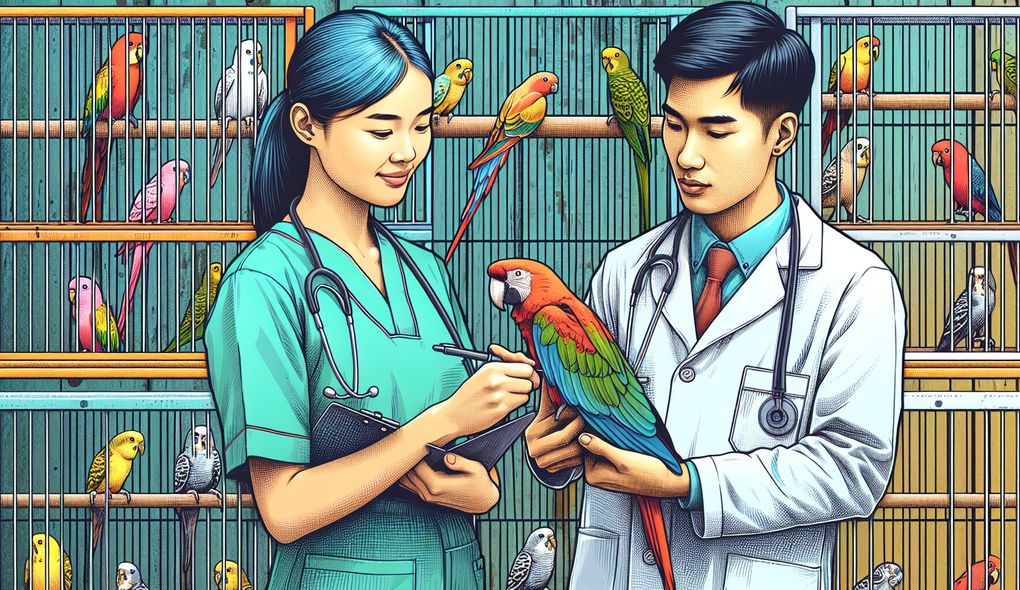How do you handle difficult pet owners or challenging situations with avian patients?
SENIOR LEVEL

Sample answer to the question:
When dealing with difficult pet owners or challenging situations with avian patients, I maintain a calm and professional demeanor. I actively listen to their concerns and empathize with their frustrations. By displaying patience and understanding, I am able to defuse tense situations and build trust with the pet owners. Additionally, I utilize my extensive knowledge of avian medicine to address their concerns and provide detailed explanations of the diagnosis and treatment plan. I also involve the pet owners in the decision-making process, allowing them to feel empowered and involved in their bird's care.
Here is a more solid answer:
In challenging situations with difficult pet owners or avian patients, my first approach is to actively listen and understand their concerns. I empathize with their frustrations and reassure them that their pet's well-being is my top priority. By effectively communicating the diagnosis and treatment plan in a clear and concise manner, I strive to alleviate their anxieties and earn their trust. For instance, I had an experience with a highly anxious pet owner whose parrot was exhibiting abnormal behavior. I patiently listened to their concerns, addressed each one, and provided a step-by-step explanation of the diagnostic tests and treatment options. This approach not only helped the pet owner feel heard and involved, but also allowed us to work together towards the bird's recovery. In challenging situations, I remain calm and composed, adapting my communication style to each individual's needs and emotions. This enables me to defuse tension and foster a collaborative environment.
Why is this a more solid answer?
The solid answer goes into more detail by providing a specific example and highlighting adaptability in communication style. It also emphasizes the importance of earning trust and collaboration. However, it could further elaborate on problem-solving skills and knowledge of avian medicine.
An example of a exceptional answer:
When faced with challenging avian patients or difficult pet owners, I approach the situation with a combination of empathy, strong problem-solving skills, and in-depth knowledge of avian medicine. I understand that pet owners may have differing levels of experience and understanding when it comes to their birds, so I tailor my communication to meet their needs. For example, I had an instance where a pet owner was resistant to a specific treatment plan due to financial constraints. I took the time to explore alternative options and worked closely with the owner to find a solution that would still provide the best care for their bird within their budget. This required careful consideration of the bird's condition, cost-effectiveness, and long-term prognosis. Ultimately, we were able to devise a modified treatment plan that satisfied both the owner's financial concerns and the bird's health needs. By leveraging my problem-solving skills, compassion, and expertise, I consistently strive to find the most appropriate and compassionate approach in difficult situations.
Why is this an exceptional answer?
The exceptional answer showcases strong problem-solving skills by providing a specific example of finding an alternative treatment plan. It also emphasizes empathy and adaptation to different situations and owners. The answer demonstrates a deep understanding of avian medicine and a commitment to providing the best care. It could further elaborate on leadership and team management capabilities.
How to prepare for this question:
- Familiarize yourself with avian physiology, pathology, and husbandry to ensure a strong foundation of knowledge.
- Practice active listening and empathy in challenging situations with pets and their owners.
- Develop problem-solving skills by seeking out complex avian cases or engaging in case discussions with colleagues.
- Stay up-to-date with advancements in avian veterinary medicine through continuing education and professional development opportunities.
- Seek opportunities to lead and manage avian health services or projects to develop leadership and team management capabilities.
What are interviewers evaluating with this question?
- Communication and interpersonal skills
- Problem-solving skills
- Knowledge of avian medicine
- Ability to handle difficult situations

